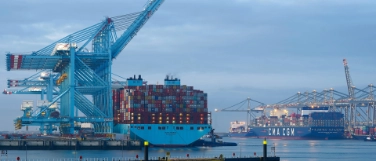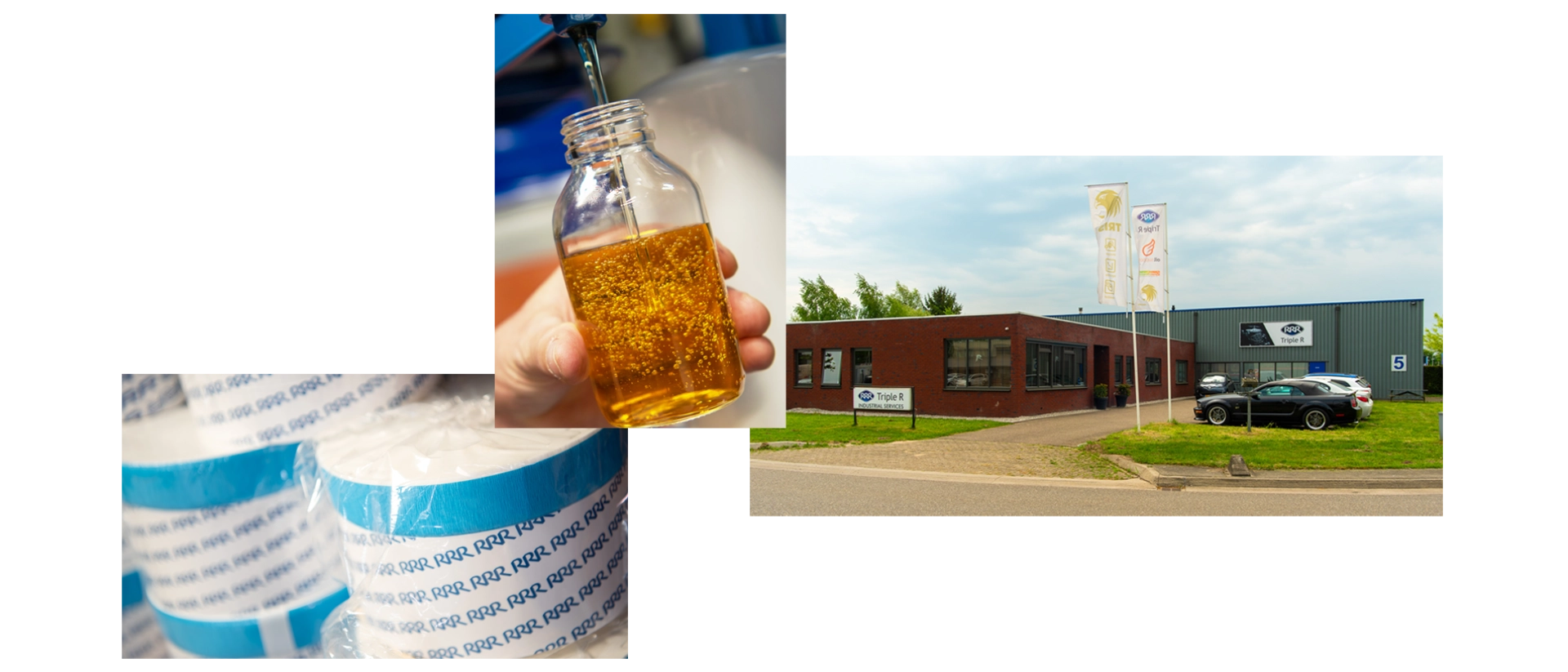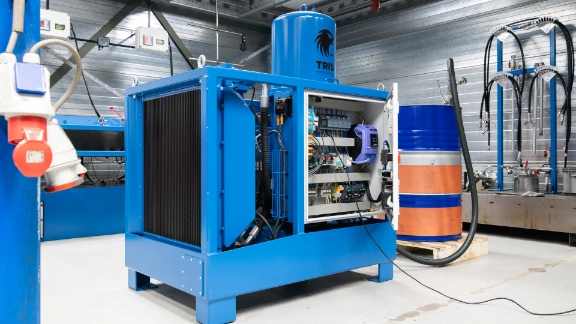Optimisation when operation is running
Hydraulics


Remco Tieke
Sales Engineer, KTR Benelux
August 2025 • It was a rainy Thursday in New York on 26 April 1956 and nobody had any idea of the historical significance the day would have. A converted tanker named Ideal X cast off from Newark harbour with Houston, Texas its destination. Its cargo was 58 sea containers, the first of their kind developed by the ship owner Malcom McLean. He was greeted with scepticism throughout the industry and was widely criticised for his idea, which in subsequent years would revolutionise the worldwide transport of goods.
Fast forward to the present. The port of Rotterdam alone currently handles around 38,000 containers. And this figure relates to the port’s daily throughput. Europe's largest deep sea harbour is frequented by vessels each carrying up to 22,000 sea containers. In order to handle such huge quantities, semi-automatic ‘Super Quay Cranes’ (SQCs) are used which facilitate efficient loading and unloading of ships. Since these SQCs are not allowed to idle, their drives are equipped with high-performance oil filter systems from the Dutch TRIS BV company, which clean the oil while the cranes are in operation.

An oil changes can quickly cost several thousand euros for a single machine. With the SQCs in Rotterdam, there is also the time factor: the faster the ships are unloaded and reloaded, the faster they can head to the next port.

Barry Splinter
CEO, TRIS BV
Efficient oil treatment for maximum machine reliability
The TRIS BV family-run company based in Hengelo has been providing customers across Europe with filtration systems made by the Japanese Triple R company for more than 30 years. Based on their extensive experience in hydraulics, lubrication and engine oil, the Dutch specialists also develop their own solutions. Their ongoing goal is to reduce oil consumption and expensive machine downtimes as well as to increase machine reliability. Applications range from mobile hydraulics, injection moulding machines, gearboxes and turbines through to bridges, locks, water treatment plants and compressors.
The OSCA-LS series of treatment systems developed in house by TRIS BV are designed for especially large-volume applications. The oil-conditioning units are installed in the SQCs in Rotterdam and also used for power station turbines, ship engines and other machinery with oil requirements ranging from 1,000 to 50,000 litres. The systems operate using a hydraulic pump that draws in the oil, feeds it through a filter and then pumps the clean oil back into the machine. Using this method, the flexible filter systems treat diverse liquids including hydraulic, lubricating, thermal and frying oils as well as diesel.

Less maintenance and longer oil service life
But why go to all this trouble in the first place rather than simply conducting regular oil changes? "These can quickly cost several thousand euros for a single machine just for the lubricant", says TRIS BV CEO Barry Splinter. "With the SQCs in Rotterdam, there is also the time factor: the faster the ships are unloaded and reloaded, the faster they can head to the next port. So the cranes have to be in use at all times to ensure that container handling is profitable for everyone involved".
One key feature of the TRIS BV systems is that they enable oil cleaning during operation and thus significantly reduce the time required for machine maintenance. Another is that the effective oil filtering extends the service life of both the oil and the critical components in hydraulic applications and transmissions many times over. "After filtering with our systems, the oil is up to 32 times cleaner than when it was delivered", says Bart Hulshof, Chief Technical Officer at TRIS BV. He continues, "The typical service life of the oil used in the SQCs is normally 20,000 hours. However without our filter systems, oil often needs to be changed after just 2,000 hours. When the OSCA-LS systems are installed, the 20,000 hours can once again be reliably achieved".
After filtering with our systems, the oil is up to 32 times cleaner than when it was delivered.

Bart Hulshof
Chief Technical Officer, TRIS BV

Optional extras with KTR cooling systems
The machinery benefits from this significantly improved oil quality because it is always able to work optimally and wear is reduced by up to 90 per cent. As a result the economic benefit for plant operators is immense. In practice this also means that companies no longer need to schedule cost intensive oil changes that would lead to expensive downtime. As Hulshof explains, "Thanks to our systems, oil changes can today simply be carried out on a 'condition-based' approach, that is to say depending on the quality of the oil".
So as to determine the oil’s status on an ongoing basis and perfectly adapt the OSCA-LS series devices to their area of application, they can be equipped with diverse sensors and numerous additional functions, such as an oil heater for example. For optional cooling, TRIS BV uses the compact and powerful oil-air coolers from KTR's OAC series.
Malcom McLean, also known as the "Father of Containerisation", died on 25 May 2001. It is said that on the day of his funeral, container ships across the globe sounded their sirens in his honour. The very first 58 containers that McLean sent on their journey in 1956 have meanwhile multiplied to 65 million worldwide and, according to current estimates, the number is growing from year to year. Consequently the Rotterdam SQCs will continue to have plenty to do around the clock. And thanks to TRIS BV and KTR, they are ideally equipped to do just this.
Oil-air cooler OAC from KTR installed in an OSCA-LS series oil filter system from TRIS














